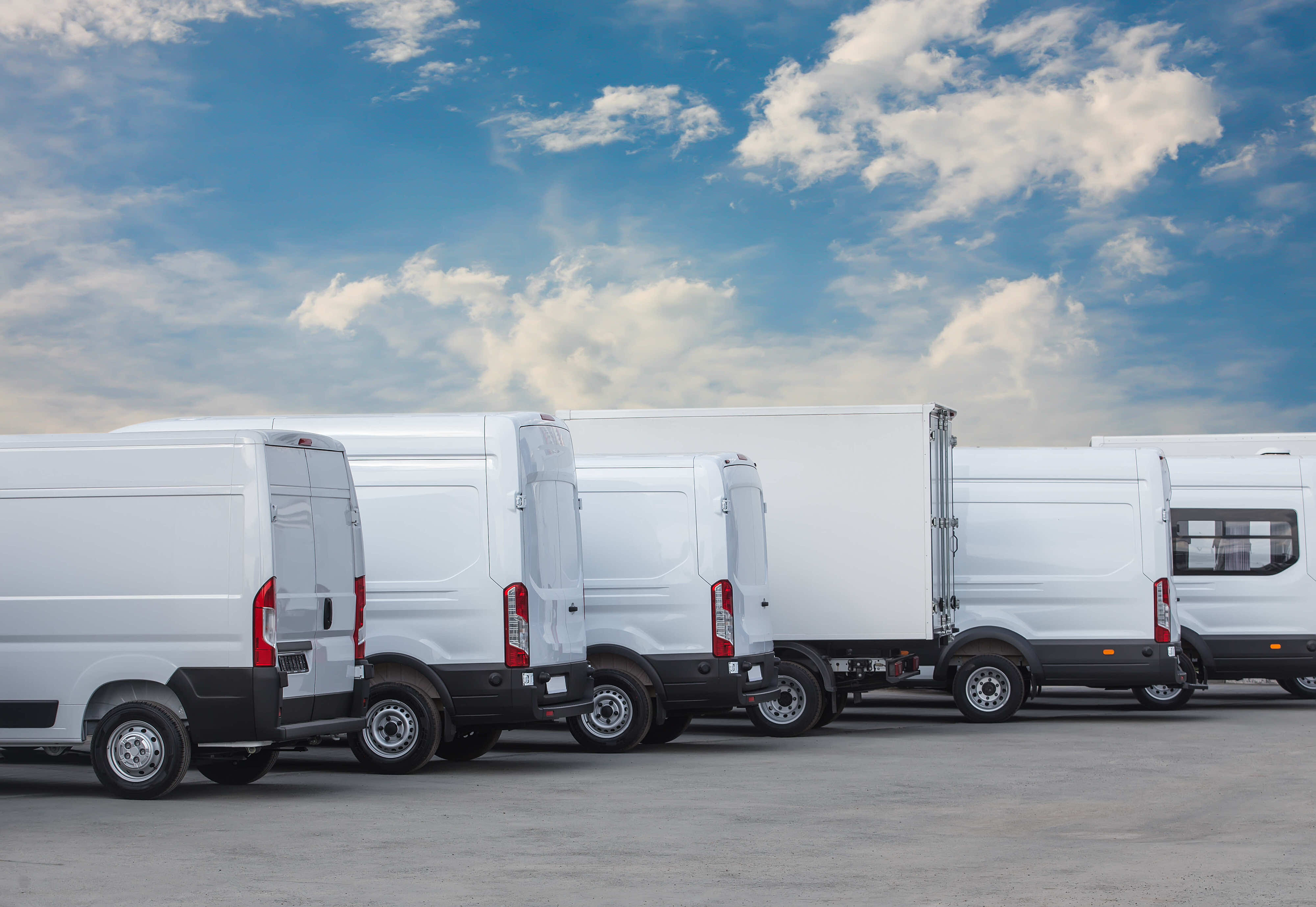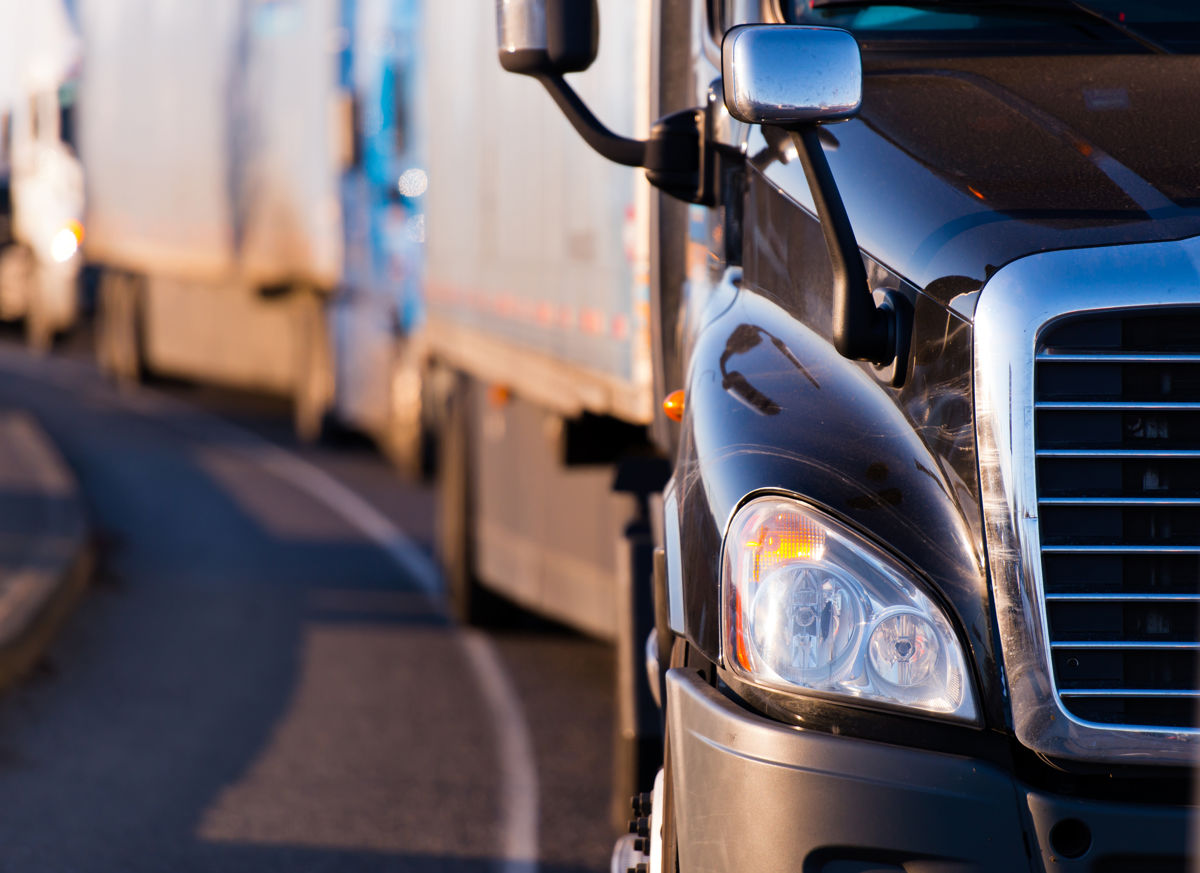Class 8 Trucks
In 2021, the American Trucking Association (ATA) tallied approximately 4 million registered Class 8 trucks on the road in the United States. About 1.1 million were for-hire with private carriers.
Anyone on the road understands risks inherent in operating a motor vehicle even under ideal conditions. Commercial truck drivers are especially aware of the dangers each time they get behind the wheel of a big rig. To help mitigate these risks, responsible commercial freight drivers and companies employ rigorous safety standards and engage in comprehensive training programs.
Ansay & Associates are experienced with risk mitigation and management. For trucking companies in WI and beyond, quality insurance coverage is key to minimizing exposure common to the commercial freight and trucking industries.
Service and experience sets us apart and it starts here.


Even with maximum safety and training efforts, along with strict compliance with Wisconsin’s latest motor carrier regulations, all the mitigation in the world can’t remove risk entirely. For this reason drivers, owner-operators, and commercial trucking companies know that basic trucking insurance coverage is paramount. Knowing what’s required, what additional coverage is recommended and how the industry operates, the trucking insurance brokers at Ansay & Associates will help those who keep the business world running stay safe and at the lowest risk possible while on the open road.
Let's take a look at what types of coverage is required, what other options there are and other need-to-know facts about insurance and the trucking industry.
Find Your Trucking CoverageWhat's required in WI
Currently there are two required insurance coverages for motor carrier companies and drivers in Wisconsin: commercial auto liability and workers compensation.
NOTE: These are bare minimum policies and additional policy endorsements may be required, depending on the type of cargo and where it’s going. For instance, drivers and companies may be subject to additional coverage and registration requirements by the Federal Motor Carrier Safety Administration (FMCSA) if certain factors are met including:
Commercial auto liability insurance is mandatory for commercial vehicles in Wisconsin, regardless if it's a semi-truck, straight box truck, passenger van or company car. Auto liability covers third-party property damage, injuries, or fatalities arising from accidents caused by the driver or the trucking company. Since trucking involves larger vehicles with more weight and higher risk of greater damage, comprehensive liability insurance is critical for freight companies and owner-operators alike.
Since each company/circumstance is different, what’s recommended under auto liability insurance may vary. Our team can help you understand your unique risk exposure and the appropriate coverage to help mitigate it.
Trucking companies operating in Wisconsin are required to carry workers’ compensation insurance. Whether a fleet owner, a motor carrier or an owner-operator, there must be a plan in place to compensate employees in case of injury or sickness during or as a result of work, including recovery time.
Anyone operating a semi truck is aware of the potential for injuries in numerous aspects of the job. A quality workers’ comp plan will benefit truck drivers in the event of injury resulting from several work-related tasks.
Contact an AdvisorWhat's Covered for Truckers?
Other Protection
With a wide range of partner carriers, Ansay is able to find the right set of policy endorsements for the unique needs of your business. In addition to Wisconsin’s minimum coverage requirements for trucking companies and owner-operators, it’s possible to bundle numerous add-on policies covering a range of different scenarios for comprehensive protection against common issues truckers and freight carriers encounter.
Depending on the company, insurers may combine these in an assortment of package types, with some coverage types overlapping the protections offered by others. Ansay & Associates will help you navigate the myriad options to get the coverage you need, while eliminating the types you don’t. Here’s a brief look at some standard coverage enhancements available for trucking companies and their drivers.
Whether running a large fleet company or a humble owner-operator business, your biggest assets are your drivers and your vehicles. In the event of damage to vehicles, a company can be in real trouble if repairs or replacement cost more than they can cover out of pocket. Since damage is nearly impossible to plan for but is always a threat, it is important for operators within the trucking industry to obtain adequate protection against physical damage to their vehicles. In fact, under some lease conditions, this type of supplementary coverage may be required.
Ansay's team of professionals have the knowledge and skills to help connect commercial trucking entities with a physical damage coverage enhancement that works best for them. A range of endorsements in this coverage group will protect your Wisconsin trucking company from financial losses from a range of events, including:
Cargo insurance covers liability in the event goods or cargo being transported are damaged, stolen, or otherwise lost during transit. As noted above, some insurance carriers package a type of cargo insurance into a general physical damage coverage. For higher value cargo or cargo more prone to spoilage, it’s worth investigating a separate comprehensive cargo insurance endorsement. Truckers & motor carriers should seriously consider specialized cargo insurance if they deal in certain categories of cargo, including:
General Liability is among the most common insurance types used across industries and different entities, but the “Motor Truck'' variation of it applies directly to the trucking industry. Depending on the policy it may cover things like customer injury from slips and falls on company premises, damaged cargo due to delivery error, even libel or slander.

What's the Damage?
As with any insurance, the overall cost of insuring trucks for commercial purposes can vary dramatically depending on many different factors. It’s important to be aware of what contributes to higher rates, differences in coverage depth and type in order to understand what premiums might look like for your commercial trucking business.
Get Insurance Savings with AnsayIn the end it’s always best to consult with an experienced insurance broker like the team at Ansay & Associates, before you sign on to any policy. Some of the factors our team will consider and account for when trying to find the different options for your trucking business include:

The simple answer is “whatever protects best”. But, when you’re operating a trucking business on thin margins, every dollar saved is important, and every dollar spent wisely is paramount. With Ansay & Associates, you’ll have a partner insurance broker dedicated to the success of your trucking operation. We’ll work hard to connect you with the coverage you need, focusing on three of the most desirable characteristics of a good insurance policy:

Does my trucking company need coverage?
If a vehicle is used in actions related to a business or occupation, a general commercial insurance policy is required. However, in Wisconsin - and many other states - any commercial vehicle with a registered WISDOT serial number may require additional coverage, depending on the vehicle and its use.
In 2021, the American Trucking Association (ATA) tallied approximately 4 million registered Class 8 trucks on the road in the United States. About 1.1 million were for-hire with private carriers.
The Owner-Operator Independent Drivers Association (OOIDA) estimated 350,000 to 400,000 vehicles belonged to owner-operators in 2022. Owner-operators play a large role in the hauling specialized or niche freight.
There are more than 570,000 long-distance freight trucking businesses in the United States. The number of long-distance freight companies in the US trucking industry has grown 4.5% per year on average between 2018 - 2023.
Get Answers
State-by-state requirements will vary, but commercial auto liability insurance, physical damage insurance, cargo insurance, workers' compensation insurance, and general liability insurance are good recommendations.
Yes, truckers need insurance even if they are leased to a carrier. Carriers may provide some coverage, but it's always a good idea to carry supplemental insurance to fully protect yourself and your assets.
Non-trucking liability insurance covers truckers using their vehicle for non-business purposes, such as personal use or when they're not driving for work.
Bobtail insurance covers truckers driving without a trailer attached to their rig. Most often used when truckers are driving to or from work.
Without insurance, a company could be held liable for any damages or injuries that occur as a result of an accident. Fines and penalties will also accrue for not carrying the required insurance.
Contact Us
Looking to help protect your company assets from auto liabilities, contact one of our agents at Ansay – we’ll help your business find coverage that matches its needs at the most competitive rate in the market.
Please note, your message does not bind, alter, or cancel coverages and is not effective until confirmed directly with a licensed agent.
You Can Always Call Us Toll-Free at: 1 (888) 262-6729